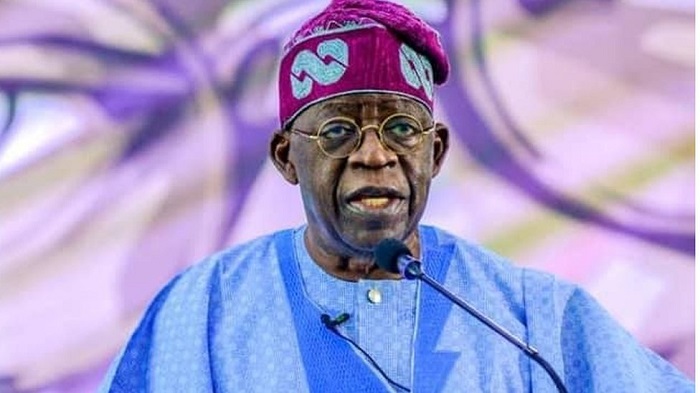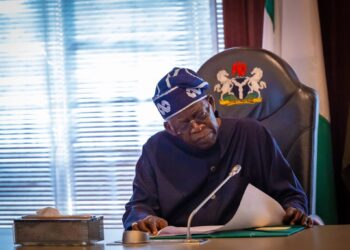Article Summary
- Nigeria is facing multiple challenges including economic downturn, insecurity, and climate shocks.
- The incoming government needs to assemble a competent team, tackle oil theft, improve exchange rate management, and implement an ambitious industrial policy.
- They should also liberalize the port service, eliminate fuel subsidies, invest in education and healthcare, address insecurity, and improve the business environment.
A new government is coming into power during a difficult time for Nigeria. In two days, the government of President-elect Bola Ahmed Tinubu will be responsible for the fate of Nigeria and its 200 million people.
Over the last few years, Nigeria has been afflicted by many challenges including oil price crises, the Covid-19 pandemic, the Ukraine conflict, insecurity, rising debt burden, and climate shocks. Economic growth has been weak since 2015, with two periods of recession.
The restrictions of movements during the Covid-19 pandemic made things worse, causing businesses to struggle and leading to job losses and higher costs of living for millions of people.
According to Afrobarometer, close to three in ten Nigerians said someone in their household lost a job, business, or primary source of income due to the pandemic. With extreme climate conditions, armed banditry and kidnapping also on the rise, many people are dealing with shrinking incomes and hardship. Nigeria’s real per capita income is now at its lowest level since the 1980s.
The outgoing government tried to help by providing cash transfers, Covid-19 survival funds, and tax reductions for small businesses. However, these efforts did not have a significant impact due to corruption and insufficient resources to deploy.
Inconsistent economic policies and poor management of the exchange rate have also made it difficult for businesses to operate, causing more harm than good.
A recent example of counterproductive policies is the Central Bank of Nigeria’s currency redesign and cashless policy which resulted in a naira shortage, making it more expensive for entrepreneurs and workers to conduct transactions.
To address the converging crises and promote economic prosperity in Nigeria, the incoming government will need to take the following steps within the next year.
Assemble a winning team to restore investors’ confidence
The incoming President must strive to restore the waning public faith in government by appointing credible and competent ministers and making sure the people come first in its policies and actions.
Unlike President Buhari who took six months to assemble his team, the incoming president must assemble his first month within his first months, ensuring his government could hit the ground running.
It is important to also appoint ministers with a proven track record of success in their career, business or government.
Tackle oil theft and raise oil production to pre-pandemic levels
According to NNPC, the government lost about $10bn to crude oil theft between January and July 2022 alone.
Addressing oil theft will help increase oil export earnings, which will in turn help the domestic currency to stabilize. A stable FX is crucial for the businesses and the economy and increased oil production and export could help.
This can be done by increasing security at oil production facilities, cracking down on corruption, and working with international partners to stop the flow of stolen oil.
Appoint a credible CBN governor to improve the management of the exchange rate
To restore investors’ confidence, address monetary and foreign exchange issues, and make it easier for businesses to operate, the incoming government must appoint a credible central bank governor.
While Governor Godwin Emefiele’s tenure won’t end until next year, the new president can name a new governor early to signal a departure from the disastrous tenure of the outgoing governor.
Have an ambitious industrial policy and a competent steering committee: To strengthen efforts to diversify the economy away from its dependence on oil, by investing in sectors such as agriculture, manufacturing, and technology, the incoming government must have an ambitious industrial policy and a competent steering committee to oversee its implementation.
Government must ensure that economic policies are consistent and followed through to create a stable and predictable business environment, which will encourage both local and foreign investment. The government must consolidate on the current government backward integration policy of various agricultural commodity programmes.
This can be done by developing a comprehensive plan to invest in sectors such as agriculture, manufacturing, and technology, and by creating a steering committee to oversee the implementation of the plan.
Liberalize the port service
To spur many Nigerian businesses to target the international market and improve our FX earnings while also improving the production value chain, the incoming government must liberalize the Port service by eliminating racketeering and shaking down numerous government agencies.
This can be done by reducing the number of government agencies involved in port operations, streamlining the bureaucracy, and making it easier for businesses to import and export goods.
Eliminate fuel subsidies
Eliminating fuel subsidies will reduce the government’s expenditure on fuel and free up resources that can be used to support vulnerable businesses.
The savings can be used to help them recover from the impact of the polycrisis, and support them to grow and create jobs. This can be done by gradually phasing out fuel subsidies over some time, and using the savings to provide tax breaks and grants to vulnerable businesses.
Invest adequately in education and healthcare
To create a healthy and educated workforce that can contribute to economic growth, the incoming government must invest adequately in education and health care.
This can be done by increasing funding for education and health care, and by improving the quality of education and health care services.
Address insecurity challenges
To create a secure and safe environment for businesses to operate, the incoming government must address insecurity challenges by improving law enforcement, intelligence gathering, and community policing.
This can be done by increasing the number of police officers, providing them with better training, and working with communities to build trust and cooperation.
Commit to improving the business environment
The incoming government must commit to improving the business environment by implementing the Nigerian Startup Act, redesigning, and implementing existing youth empowerment schemes to deliver results, and developing new partnerships to provide critical infrastructure and support to businesses.
It is our belief these steps will require strong leadership, political will, and effective implementation to achieve the desired results.
About the author: Razaq Fatai leads business advisory at Vestance, a business and advisory consulting firm helping businesses and individuals to achieve more.
















.gif)






